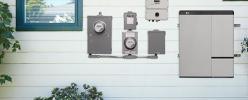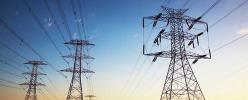What to Know Before Going Solar with Sunrun
No question about it, going solar will change your life, or at least the way you think about energy. And as with any big decision, you want to do your homework. Here are a few things you might want to know about how billing works, and how you can save the most money with your new home solar system.
1. Net-metering 101
The highlights of your solar system include the panels on your roof, and a net meter. Your system is connected to your local utility and the net meter monitors how much solar electricity is sent to the grid. That way, when you produce more electricity than you need, you’ll earn credit for it. It’s like the utility company is paying you!
2. Reducing costs
When you go solar with Sunrun, customers may savw on their electric bills. Your energy use affects how much you’ll save, so if after switching to solar you suddenly start using a lot more energy than you did before, you could end up with a bigger bill. When you use less, you’ll owe less.
3.The big picture
When you have solar, your total annual electricity costs will be lower than before. But month-to-month your savings will vary. This is due to seasonality. In the summer months when the days are longer, the extra sunshine translates into extra energy, and extra savings. Hello, solar credits! Conversely in winter, the opposite is true. Fewer hours of sunlight mean your panels will produce less, but those solar credits from summertime will balance things out in the long run.
4. Billing
If you’re wondering whether going solar will mean complicated billing, don’t worry. When you chose a monthly plan with Sunrun, you’ll get two bills—one from your utility company and one from Sunrun. Your Sunrun bill will be your regular monthly lease amount, plus the power the solar system generates. The bill from your utility will be for any additional electricity you need beyond what your Sunrun system makes.

See if you qualify for the
26% federal tax credit
Thanks so much! We'll call you shortly.
Sorry, we are not taking new customers in your area yet
Refer a friend. Get $1000
Going Solar with Sunrun
Getting a solar system is pretty amazing – but it’s also a big deal. So before you make the smart decision to give yourself lower electric bills and cleaner skies, we wanted to explain how your billing will work and how you can save the most money with Sunrun.
First, the solar system installed on your home will be connected to your local utility. A net meter will monitor how much solar electricity is sent to the grid. You’ll earn energy ‘credits’ when you produce more electricity than you need, and you can use them in the evenings or on cloudy days.
Second, your energy use affects how much you’ll save. Once you’re up and running, your annual utility costs and savings will depend on how much electricity you use. If you use more—say you forget to turn the AC off or your three nieces visit you for the summer—you could owe more to the utility company. When you use less, you’ll owe less.
Third, over the whole year, annual electricity costs with solar will be lower, but month-to-month your savings will vary due to what we call “seasonality.” In the summer, the days are longer and sunnier, so the solar system will generate more solar power and energy credits. In the winter, as your panels produce less, you’ll use those summer energy credits.
Fourth, when you chose a monthly plan with Sunrun, you’ll get two bills – one from your utility and one from Sunrun. Your Sunrun bill will be predictable – just for the power the solar system generates. The bill from your utility will be for any additional electricity you use beyond what you consume from your Sunrun system.
Now that you’re smarter about solar, call us today or visit Sunrun.com for a free quote.
Sunrun
Recommended Articles
-

Photovoltaic (PV)
Panels that are able to produce electricity from sunlight.
-

How And Why To Save Big With Solar Panels in Los Angeles
Living in L.A. offers lots of advantages. But of course, with great privilege comes great...
-

AC- vs. DC-Coupled Battery Power Storage Systems: What is the Difference?
Learn What AC & DC Coupling Mean for Your Solar Battery Storage System When you...
-

Local Utility
Where consumers buy grid electricity and where power is generated at a local level.